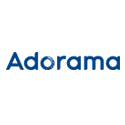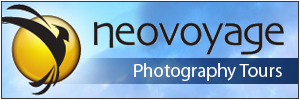Nikon Coolpix L100 Review
Nikon Coolpix L100 Introduction
The Nikon Coolpix L100 is the first medium ultra-zoom from Nikon. It packs a 10 megapixels sensor and a 15X optical zoom lens with CCD-shift stabilization. This lens starts at 28mm wide-angle and goes to 420mm super-telephoto, covering a very versatile range. While joining the recent trend of producing relatively compact models with high-zooms, the L100 arrives as the largest such camera and the one with the most zoom.
The L100 is entirely automatic. Aside from +/- 2 stops of exposure-compensation, the camera remains in control of everything but white-balance. Even ISO and metering are not controllable. It uses SD or SD-HC cards for memory and 4 AA batteries for power.
This review takes a close look at the D60's features, ergonomics, usability, image quality, performance and photographic controls. The D60 has the following major features:
- 10 Megapixels image sensor, 1.5X crop-factor.
- Automatic and selectable ISO from 100 to 3200.
- 1/4000s to 30s shutter-speeds, plus bulb mode.
- Metering modes: multi-segment, center-weighed and spot.
- Standard PASM full manual controls.
- Fully automatic mode and 7 additional scene modes.
- Exposure compensation: -5..+5 EV in 1/3 EV steps.
- Flash compensation: -3..+1 in 1/3 EV steps.
- Standard flash modes: normal, redeye, slow, slow with redeye and rear-curtain sync.
- Automatic, preset and custom white-balance, all fine-tunable.
- Focus modes: single-shot, continuous, manual and auto.
- 3-point auto-focus system.
- Single shot, unlimited 3 fps continuous drive mode and customizable self-timer.
- 2.5” LCD 230K Pixels with eye-start sensor.
- 95% coverage viewfinder with 0.8X magnification.
- Image review with magnification and luminance histogram.
- Built-in flash and hot-shoe.
- Lithium-ion battery.
- Secure Digital High Capacity memory support.
- Auto-Exposure/Auto-Focus Lock button, selectable AEL & AFL, AEL, AFL, AEL Hold and AF On function.
- Customizable sharpness, contrast, brightness, saturation and hue.
- Customizable function button.
 Key Features
Key Features
- 10 Megapixels sensor
- 15X Stabilized optical zoom, 28-420mm equivalent
- Automatic ISO sensitivity from 80 to 800
- Shutter-speeds from 1/1000s to 2s
- Automatic white-balance, 5 white-balance presetsDaylight, Incandescent, Fluorescent, Cloudy and Flash and custom white-balance
- Evaluative metering only
- Single shot and continuous drive
- Best-Shot-Selection mode
- Normal and macro focus modes
- Exposure compensation, -2..+2 EV, 1/3 EV steps
- 1 FPS Continuous drive at full-resolution
- 13 FPS Continuous drive at 3 megapixels
- Self-timer, 10 seconds only
- 640x480 30 FPS Movie mode
- 3" LCD 230K Pixels
- Standard, vivid, b&w, sepia, cyanotype and pastel color modes
- Powered by 4 AA batteries
- Uses Secure Digital High-Capacity memory
Nikon Coolpix L100 Suitability - What is it good for?
 Nikon may be on to something with the L100. Suitability is not so much about subjects but about the user. The L100 covers a wide zoom-range, suitable for indoor and distant shots. Its simplicity and limited feature set make it suitable for very novice photographers only. The idea of growing with a camera does not apply here, and for a digital camera as rapidly advancing technology, it may not be important. Instead, you grow out of a camera and into something more advanced, like a Coolpix P90 with its 24X optical zoom and full-manual-controls.
Nikon may be on to something with the L100. Suitability is not so much about subjects but about the user. The L100 covers a wide zoom-range, suitable for indoor and distant shots. Its simplicity and limited feature set make it suitable for very novice photographers only. The idea of growing with a camera does not apply here, and for a digital camera as rapidly advancing technology, it may not be important. Instead, you grow out of a camera and into something more advanced, like a Coolpix P90 with its 24X optical zoom and full-manual-controls.
In terms of subject suitability, the Nikon Coolpix L100 is made for typical shots. ISO and shutter-speeds are shy of fast moving subjects and low-light environments. So, yes, the lens covers a versatile range, but lighting and movement must be adequate.
The Nikon L100 does not have an optical viewfinder, the same goes for all ultra-zooms though. Its 3" LCD offers a clear but incomplete view of subjects, covering about 97% of the field-of-view. Nearly every other camera has better coverage. There is no reason for this limited view, so this is clearly a big disappointment. The LCD screen itself is quite reflective, so in bright light it becomes very difficult to see. In more typical conditions, visibility is OK though.

This Coolpix also records 640x480 30 FPS movies with audio. A panorama mode which helps take a sequence of images in any direction is also available. It helpfully locks exposure and focus and disables all settings but image size.
Nikon Coolpix L100 Usability - How easy is it to use?
 There are not many easier to use digital cameras. The large hand-grip is comfortable to hold and feels quite secure when combined with the thumb-rest on the rear of the camera. A pattern of small dots helps the thumb from slipping off. It comes with a neck strap and tether for the lens cap. Using these makes loosing the cap or camera nearly impossible. It is also very light compared to most cameras which require a neck-strap.
There are not many easier to use digital cameras. The large hand-grip is comfortable to hold and feels quite secure when combined with the thumb-rest on the rear of the camera. A pattern of small dots helps the thumb from slipping off. It comes with a neck strap and tether for the lens cap. Using these makes loosing the cap or camera nearly impossible. It is also very light compared to most cameras which require a neck-strap.
The camera is powered by a recessed but easy to use button on the top-panel. At the top-front of hand-grip, the shutter-release is surrounded by the zoom-controller. A short movement of the zoom-controller, move the lens quickly across its range. The shutter-release has a nice halfway point with quick trigger. In playback mode, the shutter-release does nothing, the L100 is not shooting-priority. However, the zoom-control is used to zoom into images and out to the thumbnail and calendar views.
 The remaining controls are all located on the camera's rear. There is a standard 4-way controller with a central OK button and 4 buttons around it. Each direction on the 4-way controller is assigned a function which may not be active, depending on the shooting mode. Up cycles through 4 flash modes: Auto, Redeye, Off, On and Rear-Sync. Right activates exposure-compensation, from -2 to +2 EV, in 1/3 EV steps. Down toggles macro focusing on or off and left toggles the 10-second self-timer. In all cases the camera requires OK to be pressed to confirm the selection, otherwise the setting does not change.
The remaining controls are all located on the camera's rear. There is a standard 4-way controller with a central OK button and 4 buttons around it. Each direction on the 4-way controller is assigned a function which may not be active, depending on the shooting mode. Up cycles through 4 flash modes: Auto, Redeye, Off, On and Rear-Sync. Right activates exposure-compensation, from -2 to +2 EV, in 1/3 EV steps. Down toggles macro focusing on or off and left toggles the 10-second self-timer. In all cases the camera requires OK to be pressed to confirm the selection, otherwise the setting does not change.
As the camera is not shooting-priority, is it important to understand the top two buttons. The Camera button is used to select the shooting-mode and to return to one from playback-mode. The Play button is used to enter playback mode. Pressing it while in playback mode has no effect. One of the lower buttons invokes the camera menu, the other prompt an image for deletion, either the last image shot or the image shown on the LCD, if in playback mode.
The Menu, activated by the Menu-button, contains two tabs. The upper tab is either the Record or Play menu, depending on the camera-mode. The lower tab is the Setup menu. The Record menu controls: resolution, WB, drive, color and distortion control. Remember, no ISO, metering or focus settings exist on this camera.
 The only option needing clarification is the drive mode. One can choose between Single, Continuous, BSS and Multi-shot 16. Single is the normal single-shot mode. A 1 FPS continuous-drive mode is activated in continuous mode. A short burst where the camera selects the best shot is activated by selecting BSS and a collage of 16 minuscule images is created by Multi-shot 16. Note that the Nikon L100 can also shoot at 13 FPS in the Sport-Continuous mode, albeit only at 3 megapixels.
The only option needing clarification is the drive mode. One can choose between Single, Continuous, BSS and Multi-shot 16. Single is the normal single-shot mode. A 1 FPS continuous-drive mode is activated in continuous mode. A short burst where the camera selects the best shot is activated by selecting BSS and a collage of 16 minuscule images is created by Multi-shot 16. Note that the Nikon L100 can also shoot at 13 FPS in the Sport-Continuous mode, albeit only at 3 megapixels.
The 3" LCD shows each image after it is taken. There is no way to disable this, so we cannot know if it would be any faster without the image review.
Playback mode quite fast, except for the second-or-two delay when starting to zoom-in on an image. Everything is fast, scrolling particularly so and also navigating from one image to the next. The Play menu has: D-Lighting, Print set, Slide show, Delete and Small picture. Notably absent here is the Rotate image operation which is, for an a reason beyond comprehension, in the Setup tab.
The L100 uses SD or SD-HC memory cards, which are presently the cheapest and most common form of flash memory. Images are numbered in a standard form but the number keeps increasing even after changing the memory card. Not only is this rather annoying, there is also no menu option to reset the counter to zero. Then again, maybe only camera reviewers care about this.
Nikon Coolpix L100 Conclusion
The Nikon Coolpix L100 is as simple as it gets, plus it offers a 10 megapixels sensor and a 15X optical zoom lens with image stabilization. Those headline grabbing features are highly sought after, particularly in a small package. In this regards, the L100 compromises with the longest zoom and largest body in its class.
Image quality can be good under ideal conditions, good bright light mostly. Speed is rather good as well. Higher sensitivities suffer from destructive processing, so ISO has to be kept low to keep the L100 happy. Since it is lacking control over ISO, the only way to keep this digital camera performing is to shoot bright scenes of limited dynamic-range. Most scenes unfortunately do not fall into this category. The result are frequent problems of over-exposure. The most serious remaining problems include poor automatic white-balance and LCD screen coverage. For former can be avoided by using custom white-balance but nothing can be done about the latter.
Its simplistic feature-set is a double-edged sword. On one hand, it gives a simple interface and few controls to worry about. On the other, growing with the camera is not really possible as there are no more functions to learn and experiment with. Definitely this digital camera is aimed at the very novice. The camera chooses good settings mostly but ultimately it has the control over final image quality rather than the user.
 |
Please Support Neocamera
All information on Neocamera is provided free of charge yet running this website is a huge endeavor. Purchases made via affiliate links found throughout the site help keep it running and up-to-date. There is no additional cost to you, so please consider buying via these links to our affilates:
Thank you for your support!
Nikon L100 Highlights

Sensor-Size: 6 x 5mm

Actual size when viewed at 100 DPI
| 10 Megapixels Ultra Zoom | ISO 80-800 |
| 15X Wide Optical Zoom | Shutter 1/1000-2s |
| Built-in Stabilization | Custom white-balance |
| 1 FPS Drive, Unlimited Images | Standard AA Battery |
| 640x480 @ 30 FPS Video Recording | Secure Digital High Capacity |
| 3" LCD 230K Pixels |
Updates
2025.11.13

Best Gifts for Photographers in 2025 by Budget
The annual Neocamera Photography Gift Guide updated to 2025. Find great gifts for photographers with any price budget.
2025.07.07

Stellar Photo Recovery Review
Review of Stellar Photo Recovery V12. This Windows and MacOS software can recover photos and videos in a huge number of formats from memory cards, USB drives, SSDs and HHDs.
2025.05.14

Huion Kamvas 13 Gen 3 Review
In-Depth review of the Huion Kamvas 13 Gen 3 Pen Display Tablet for photographers and graphic artists.
2025.01.18

Fujifilm GFX 2025 Lens Roundup
Lens Review roundup of Fujifilm GFX Medium-Format lenses. Quality, performance and handling of the GF20-35mm F/4R WR, GF30mm F/3.5 Tilt-Shift and the GF55mm F/1.7.
2024.11.18

Best 2024 Photography Gifts for Every Budget
Great gifts for photographers and photo enthusiasts selected for every budget among the best products of 2024.
2024.08.07

Eye Protection Tips for Professional Photographers
The four main considerations for professional photographers regarding eyewear.
2024.07.14

Fujifilm X100VI Review
Flagship fixed-lens compact digital camera with a 40 MP sensor and Image-Stabilization, a first for the series. Retro design featuring dual control-dials, plus direct ISO, Shutter-Speed and EC dials. Its hybrid viewfinder can switch between EVF and OVF mode.
2024.05.09

Fujifilm GFX100 II Review
Flagship 102 Megapixels Medium-Format Mirrorless Digital Camera with 8-Stop 5-Axis IBIS, 8 FPS Drive, 8K Video and 400 MP Super-Resolution capture in a weatherproof and freezeproof body with dual control-dials and dual memory-card slots.
2024.04.03

Fujifilm X-T5 Review
Newest Fujifilm flagship boasting a 40 MP APS-C sensor, 5-axis IBIS with 7-stop efficiency, 15 FPS continuous drive, 6.2K Video capture, dual control-dials and dual SDXC UHS-II slots in a sturdy weatherproof and freezeproof body.
2023.11.20

Best Digital Cameras of 2023
Find out which are the Best Digital Cameras of 2023. All the new Mirrorless Digital Cameras from entry-level to high-end professional.
2023.07.10

Fujifilm X-H2 Review
40 Megapixels APS-C Hybrid Mirrorless Digital Camera with 7-stop IBIS. Fastest shutter ever and 8K video capture. Large builtin EVF with 0.8X magnification and 5.8 MP, plus an Eye-Start Sensor. Packed with features and large number of controls in a weatherproof and freezeproof body.
2023.05.07

Sony FE 20-70mm F/4G Review
Review of the unique Sony FE 20-70mm F/4G lens. The optical zoom of this lens spans ultra-wide-angle and medium focal-length coverage, making it one of the most versatile Full-Frame lenses on the market.









